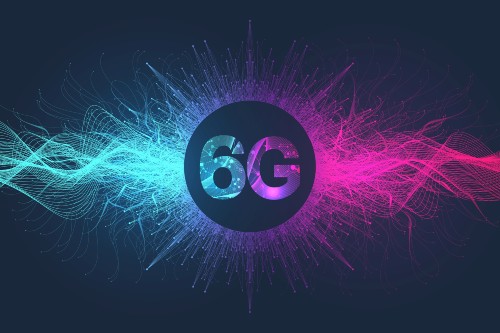
A pioneering centre is being launched to take mobile technology to the next level and put the UK at the global forefront of 6G research, innovation, and education.
The new virtual hub, called 6G Futures, unites more than 400 world-renowned experts in telecommunications networks, cyber, Artificial Intelligence, digital humanities, social sciences and arts from the University of Bristol and King's College London in a unique partnership which will help shape the future of mobile technology for individuals and society.
Although some concepts associated with 6G, including holographic communications, immersive life and the creation of digital twins, may sound futuristic, others such as autonomous driving are already well-recognised. Through further development of human-centric 6G networks, the applications of such advances have the potential to further transform how health, arts, transport, and many more systems currently operate.
Professor Dimitra Simeonidou, Director of the University of Bristol's Smart Internet Lab and Co-Director of Bristol Digital Futures Institute, said: "The public is only beginning to see first-hand the enormous potential of 5G networks, an area which we have been working on for many years. Through this new centre, we will now focus on the next generation mobile networks – 6G and beyond – and the truly awe-inspiring capabilities these will bring. 6G will be inherently human-centric, and will establish a cyber-physical continuum by delivering real time sensory information, supporting haptics and holograms. This takes us far beyond future-forecasting: crucially, this is about having the specialist knowledge and expertise to transform visions into deliverable solutions, accelerate innovation, and make a positive difference to society worldwide."
Professor Mischa Dohler, Professor in Wireless Communications at King's, said: "As adoption of 5G accelerates around the world, it's important the UK is prepared for 6G as the next generation mobile technology. The creation of this centre is a notable moment for the UK technology sector. We will be developing novel architectures, incorporating federated exchange and self-synthesising mechanisms, advance the internet of skills, and embed blockchain, quantum and federated AI technologies. But it's not just pure tech - we'll be working on co-creation with verticals toward some truly exciting and societally impacting use-cases, while contributing to policy, alliances and global standards."
Both institutions played a pivotal role in bringing 5G to the mainstream. While they both excel in Artificial Intelligence and machine learning, King's specialises in mobile networks and the University of Bristol has particular expertise in wired/wireless technology and network layers. By combining their preeminent skills, the centre is ideally placed to consolidate and strengthen the UK's world-class track record in telecoms and networks over the next five years and beyond.
The anticipated capabilities of 6G are mind-boggling. With projected download speeds 10 times faster than 5G, 6G will also harness the ability of trillions of connected machines to transfer sensory information as part of the communications experience, creating a whole new cyber-physical continuum. Furthermore, 6G will comprise networks which design, organise, and sustain themselves, offering previously unchartered levels of efficiency.
Professor Phil Taylor, Pro Vice-Chancellor for Research and Enterprise at the University of Bristol, said: "This multi-disciplinary centre will fill a real national leadership gap on 6G here in the UK. Not only will be the focus be on technology but also on the development of solutions that could transform sectors spanning health, energy and transport. It will provide an opportunity for industry and international collaborators to come together with the best and brightest minds, here in the world-renowned tech clusters of London and Bristol."
Professor Reza Razavi, Vice President & Vice Principal (Research) at King's, said: "If the UK is going to play a major role in realising the potential of 6G, we need a national centre that brings together the very best minds in communications technologies, cyber, AI, digital humanities, the arts and social science. The formation of this centre is a very exciting moment in the trajectory of 6G evolution."






